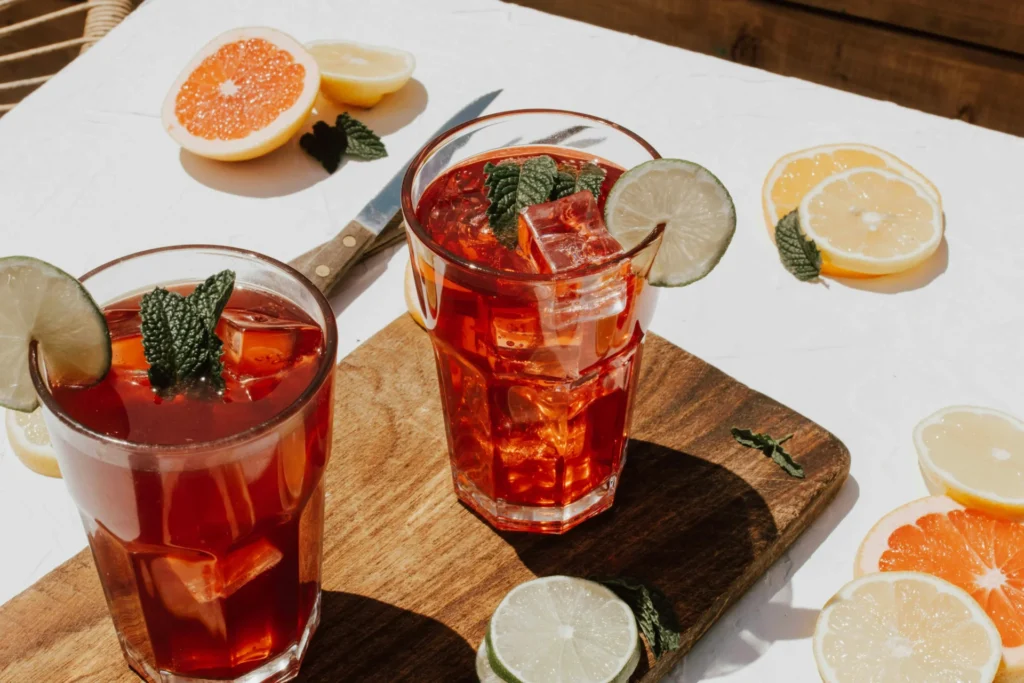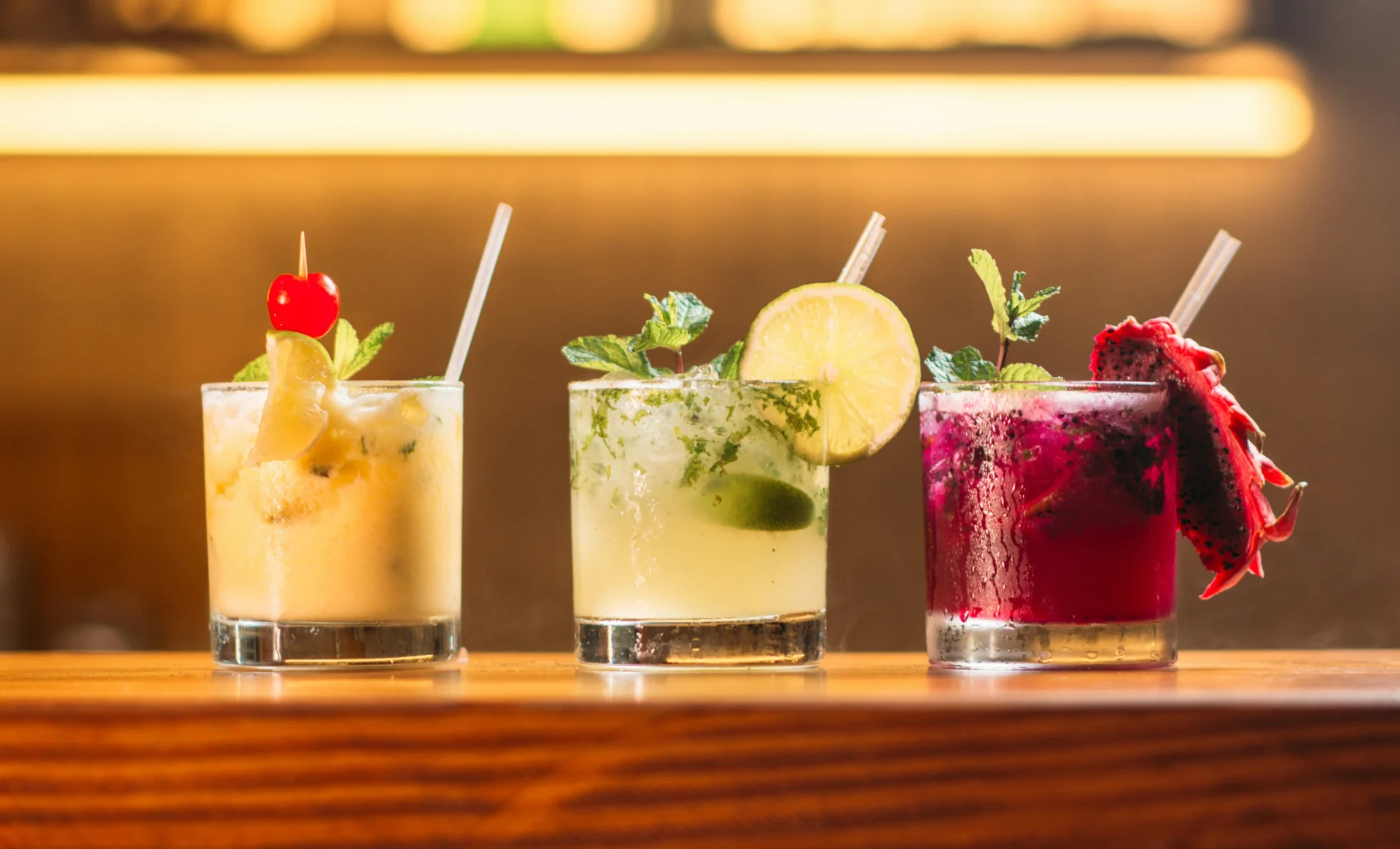The beverage industry continues to expand rapidly, shaped by shifting consumer behavior and market expectations. In this crowded space, building a clear and actionable beverage marketing strategy is essential for lasting visibility and growth. While great taste and packaging remain crucial, they are no longer enough on their own. Brands must now engage with audiences across digital, retail, and experiential channels. Success depends on a deep understanding of positioning, messaging, and execution. Therefore, the right strategy can transform a new product into a household name.
Consumers now expect authenticity, relevance, and innovation in every interaction. As preferences change, so must the way beverage brands communicate and connect. Marketers must tailor content to match current habits without losing brand identity. Additionally, long-term success relies on a mix of performance data and creative insight. Without structure, even the most exciting campaign can fall flat. This blog outlines how to execute a high-performing marketing plan for today’s beverage space.
Understanding the Role of Strategy in Beverage Marketing
Every effective campaign starts with a clear roadmap, and in the beverage space, that roadmap is the beverage marketing strategy. It acts as the foundation for decision-making, guiding everything from target audience to distribution. Without it, efforts risk becoming inconsistent and reactive instead of purposeful and impactful. A strong strategy helps unify a brand’s messaging across social platforms, print campaigns, and point-of-sale materials. This alignment not only improves brand recall but also increases consumer trust and retention. Brands that anchor their planning in strategy outperform those that rely on isolated efforts.
Positioning plays a critical role in a successful beverage marketing strategy because it defines how a brand is perceived. Whether the goal is to highlight health benefits, flavor profiles, or sustainability, positioning helps clarify messaging. It sets the tone for creative direction and product storytelling across campaigns. With the right positioning, marketing efforts become more cohesive and more persuasive. Additionally, it influences pricing, packaging, and promotional tone. The strategy then connects positioning with the right consumer segments at the right time. Strong positioning enables a brand to stand apart, even in categories filled with similar products.
Understanding what makes a brand unique is foundational in both beverage and food and beverage marketing. Many principles apply across industries, from audience targeting to content development and distribution. Leveraging those similarities can help brands maximize results and draw on successful frameworks from other food categories. When applied to beverages, this cross-industry perspective often reveals untapped opportunities. Brands that study both industries can refine their approach and stay ahead of evolving consumer tastes. It also enhances planning by borrowing insights from food and beverage market research, especially in trend forecasting and product innovation. Using shared learnings between categories leads to smarter execution.
Consumer Behavior and Its Influence on Campaign Planning
Consumer behavior is the compass that directs every smart beverage marketing strategy in the modern landscape. With health consciousness, lifestyle alignment, and social influence shaping demand, marketers must respond with agility. Understanding what drives purchasing decisions allows brands to personalize their outreach effectively. In many cases, buying a beverage is as much about identity as it is about taste. People are drawn to drinks that reflect their values, routines, and aspirations. As a result, strategy must evolve to align with consumer expectations while staying consistent in message. Insights into purchasing behavior guide the tone, timing, and content of campaigns.
These behavioral insights also help brands enhance social media marketing for food brands. Recognizing patterns in how consumers share, like, and comment on content gives marketers the tools to refine messaging. When applied thoughtfully, these insights elevate performance across channels and boost customer engagement. In the context of beverages, content that reflects lifestyle aspirations tends to resonate deeply. For example, campaigns centered on fitness recovery or mental clarity can align with target audiences’ daily routines. This approach builds emotional connection and supports brand loyalty. The better brands understand these behaviors, the more relevant their content becomes.
This type of strategy also complements organic food marketing strategy by emphasizing authenticity and wellness-driven messaging. Consumers now look beyond flavor to explore benefits, sourcing practices, and sustainability. Aligning content with these deeper values adds credibility and appeal to beverage campaigns. For functional or better-for-you drinks, this transparency drives stronger results. Smart marketers use these motivations to frame their value proposition in more compelling ways. When executed consistently, value-based positioning enhances trust and supports premium pricing. A data-backed, value-driven marketing strategy makes that alignment possible.
Brand Identity as the Anchor of Marketing Consistency
A well-defined brand identity serves as the emotional and visual core of any beverage marketing strategy. It gives customers something to connect with beyond the product itself. From logo and color palette to tone of voice and packaging, every element should reflect a brand’s values and vision. When done right, it builds trust and encourages repeat purchases by creating a familiar experience. Customers tend to engage more with brands that express clear, consistent stories. With a strong identity, the marketing strategy becomes more than communication. It becomes recognition. That recognition is essential for standing out in a crowded market.
Developing a unique brand voice supports every stage of a beverage marketing strategy, from awareness to loyalty. A relatable tone helps humanize the brand and makes it easier for consumers to form lasting impressions. When paired with strong visuals and messaging, voice becomes part of what the brand is known for. Each social post, ad, or email reinforces that voice, adding another layer to the brand story. Working with an experience beverage marketing agency can help strengthen this strategy. With identity in place, marketing becomes more efficient and more effective.
This clarity extends to packaging, a major brand touchpoint in retail environments. Investing in food and beverage packaging design helps align external perceptions with internal values. Clear labeling, sustainable materials, and visual storytelling contribute to shelf impact and customer perception. When combined with consistency in messaging and tone, packaging becomes a silent sales tool. In many campaigns, visual branding outperforms written messaging in grabbing attention. This is especially true in competitive categories where impulse buying is common. Brands that prioritize both identity and packaging gain more traction with time and loyalty.

Social Media’s Role in Expanding Market Reach
Social platforms have become essential environments for executing an effective beverage marketing strategy. They allow brands to engage with customers directly, share stories, and receive feedback in real time. Visual platforms such as Instagram and TikTok make it easier for beverage brands to showcase aesthetics, flavors, and lifestyle associations. With the right content, even a small brand can generate massive exposure through organic reach or viral moments. Engaging content formats such as behind-the-scenes videos, influencer collaborations, or user-generated features help brands stay top of mind. These efforts not only entertain but also drive curiosity and product trial.
The best strategies in this space mirror successful Instagram marketing for restaurants by focusing on aspirational content and strong visual appeal. Brands that create vibrant, relatable posts tend to see more engagement and brand retention. For beverages, this could mean refreshing visuals of drinks in lifestyle settings or user-generated content that encourages social proof. Reels, stories, and influencer spotlights continue to be among the most effective tactics. Social media gives brands the opportunity to interact, learn, and evolve directly with their community. This interaction is one of the strongest levers for growing reach organically.
Another tactic drawing attention is social media advertising for restaurants, which offers hyper-targeting and real-time testing. These same principles apply seamlessly to beverage brands seeking to narrow their focus or scale quickly. With paid social, brands can reach new audiences based on behavior, interests, and demographics. Pairing this with organic engagement strengthens results and improves ROI. It also allows for faster insights, as data comes in almost instantly. For time-sensitive campaigns, social ads offer an unbeatable mix of speed and precision. Beverage marketers who combine storytelling with data-driven distribution get the best of both worlds. In a landscape where attention is fleeting, precision and creativity go hand in hand.
Technology and Data in Campaign Optimization
Modern beverage brands rely on technology to streamline and scale their marketing efforts efficiently. Marketing automation tools allow for personalized communication that adapts to user behavior and preferences. Whether through email sequences, dynamic ads, or SMS reminders, these tools create consistency without sacrificing personalization. A beverage marketing strategy supported by technology enables brands to stay visible at every step of the customer journey. Automation also frees up teams to focus on creative execution rather than repetitive tasks. As competition increases, efficiency becomes a strategic advantage. When technology and creativity align, the impact is greater than either alone.
Digital platforms also enhance the use of Google Ads for restaurants, especially for beverage brands seeking location-based targeting or seasonal promotions. These tools help identify specific keywords, audience segments, and local intent signals. With proper integration, beverage brands can create campaigns that appear during peak demand periods or in high-performing regions. These insights improve click-through rates, reduce cost per acquisition, and drive more qualified traffic. When paired with brand-building efforts, paid ads help accelerate visibility. The key is using data to adjust bids, creative assets, and targeting in real time. Beverage marketers who combine automated bidding with compelling offers see faster traction. Smart use of ad tech increases efficiency while strengthening campaign ROI.
Data collection and performance metrics are also core to food and beverage strategy consulting, especially when scaling across markets. By reviewing engagement patterns, purchase behavior, and customer feedback, consultants can fine-tune strategies with precision. These insights help identify which messages resonate, which channels perform best, and where budgets should be reallocated. Data-informed decision-making minimizes risk and speeds up successful iterations. When brands use performance data to guide their creative and strategic choices, results improve significantly. The combination of creativity, tech, and analytics creates a powerful framework for long-term success.
Wrap Up
Every great beverage brand begins with a product, but it grows through strategy. In a space where attention is limited and options are abundant, clarity and planning become powerful assets. A cohesive beverage marketing strategy brings consistency across touchpoints and sharpens every campaign’s focus. It aligns brand identity, audience insights, and creative execution to deliver meaningful impact. By understanding consumer behavior and leveraging digital tools, marketers build systems that scale. Strategic planning is no longer optional. It is the foundation for long-term relevance and success.
Brands ready to elevate their campaigns should consider scheduling a free consultation with experienced digital marketing professionals. An experienced New York digital marketing agency that is well-versed in food and beverage strategy, like fishbat, can offer fresh perspective and actionable solutions. Whether you aim to boost awareness, increase conversions, or optimize performance, tailored support ensures better outcomes. To learn more or speak directly with a specialist, contact us at 855-347-4228 or email hello@fishbat.com. You can also learn more through our about us page. Smart strategy starts with the right conversation, so reach out today to begin building yours.


